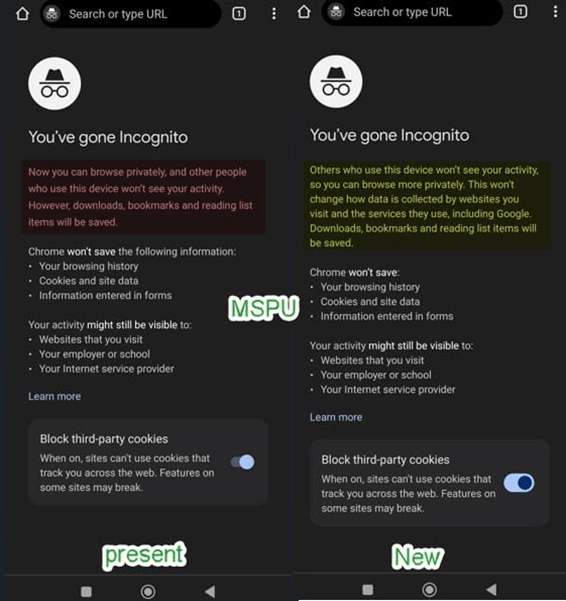Google Agrees to Hefty $5 Billion in Incognito Tracking Lawsuit
Google has agreed to a $5 billion settlement concerning a lawsuit over illegal tracking of user activities in Chrome’s “Incognito” mode. Consequently, the company has updated the description of the “Incognito” mode to now include information about data collection practices previously unmentioned. This updated text was discovered in the latest Canary build of Google Chrome version 122.0.6251.0, as reported by MSPowerUser.
In 2020, a class-action lawsuit was filed against Google, claiming $5 billion for collecting user data through corporate services in “Incognito” mode. Google defended its stance, asserting that data collection on websites still occurs in “Incognito” mode, but this was not specified in the mode’s description itself.

A comparison of the current (left) and updated (right) “Incognito” mode descriptions reveals significant changes. The new version states: “Other users of this device will not see your activity, allowing for more confidential browsing. However, this does not affect the data collection by websites you visit and their services, including Google. Downloads, bookmarks, and reading list items will be saved.”
In contrast, the previous version read: “Your activities in incognito mode will be inaccessible to other users of this device. However, bookmarks, downloaded files, and reading list items will be preserved.”
A Google representative claims that the changes in the description provide users with more information about the “Incognito” mode. He added that “Incognito” mode prevents the saving of user activity information on their device.
Previously, Google cited the description of “Incognito” mode as evidence that the company informs users about possible tracking methods even in this mode. However, the court rejected this argument, dismissing Google’s petition for a decision without a trial. In December, Google and the plaintiffs agreed on a settlement. The terms of the lawsuit settlement will be presented in court in January, with final approval expected by the end of February.





